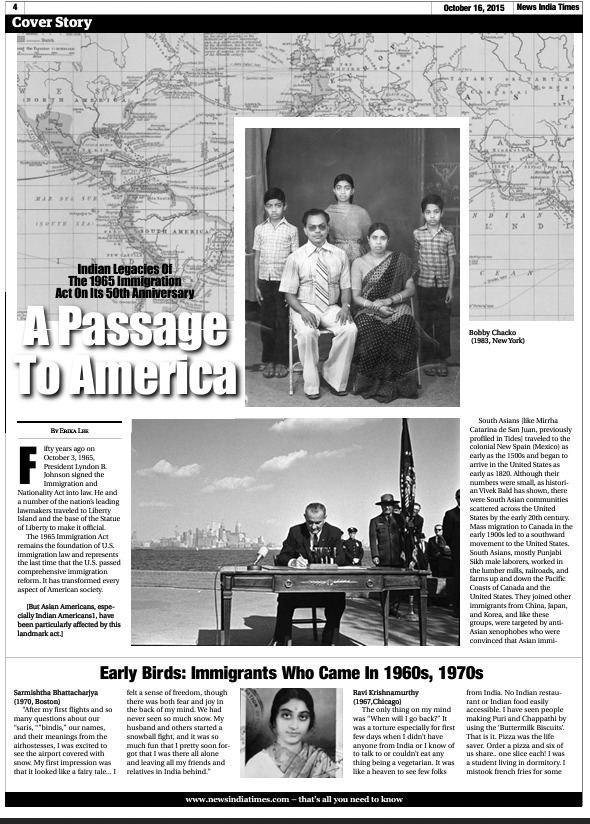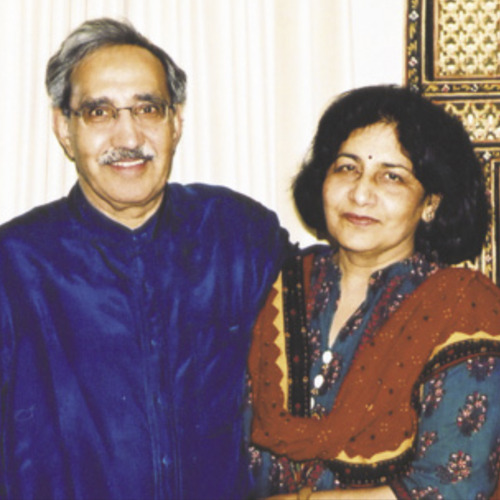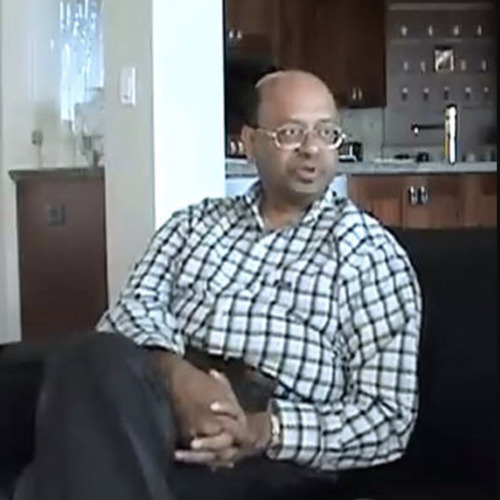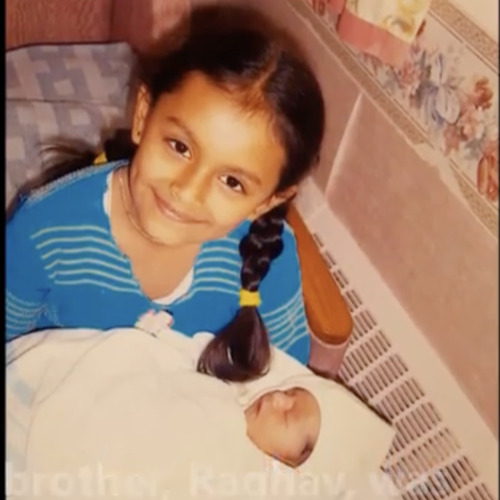First-Generation
Quotes About Initial Experiences Moving to America
"The only thing on my mind
was “When will I go back?” It
was a torture especially for first
few days when I didn’t have
anyone from India or I know of
to talk to or couldn’t eat any
thing being a vegetarian. It was
like a heaven to see few folks
from India. No Indian restaurant or Indian food easily
accessible." - Ravi Krishnamurthy (1967, Chicago: News India Times)
“At that time few people came. I had a couple of my classmates who were also going to come. It [Indian Institute of Science, Bangalore] was a good school so everybody tried to go to either England or U.S. for graduate school." - Kailash Joshi (1963, Pullman, Washington: News India Times)
"What was surprising to me was, frankly, I got involved with a host family program. And that's when I realized the values of Americans were not that much different than Indians. Whereas we used to feel like, “Oh, it's a completely different society with probably no values,” that's not true at all, you know. I used to go to their homes and we used to go there for Thanksgiving and Christmas as a part of the host family program of the University of Cincinnati. I realized that it's very similar to what we do at Diwali or what we would do at other festivals or weddings or something like that. And that was a, sort of a positive plus for me and a surprise at the same time, but a positive surprise." - Dinesh Keskar Interview
As these sentiments by a few different First-Generation Indian Americans expressed, the initial experiences and reactions toward U.S. culture are varied. Some people found the transition into the U.S. to be a largely frightening and painful time, whereas others felt the transition was relatively smooth. But what this generation of Indian immigrants all share is the bravery to leave their home-country behind and face the tensions generated by changing circumstances both within and outside the community, racial discrimination, cultural differences, often being less supported away from extended family, and the struggles that come with trying to maintain their identity and traditions while trying to assimilate into the U.S.
Below is a transcript of Ranuka Paltanwale's oral essay. In it, she talks of her upbringing both during her brief childhood in America, then to her longer time spent coming-of-age in India before moving to the U.S. for college. Markedly, she reflects on how her upbringing and tastes have been aquired from India, causing some amount of questioning as to what it will mean to be an Indian American. Ultimately, she seems to determine that she is at a place mentally and physically, to explore these intersections between Indian and American experiences and identities.
This is just one example of the grappling of identity and belonging that many immigrants and their descendants experience as they navigate the cultural, social, and personal challenges of living between two worlds. Ranuka's story exemplifies the broader themes of biculturalism and self-discovery, highlighting how individual narratives contribute to the evolving understanding of what it means to be Indian American in a diverse and dynamic society.



